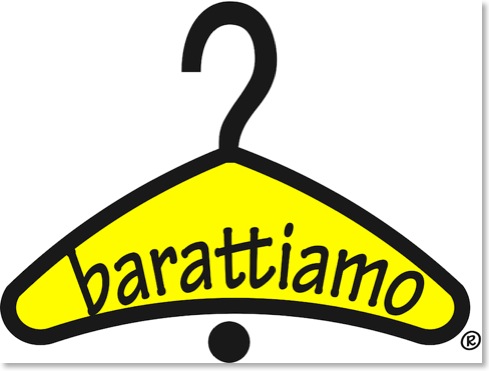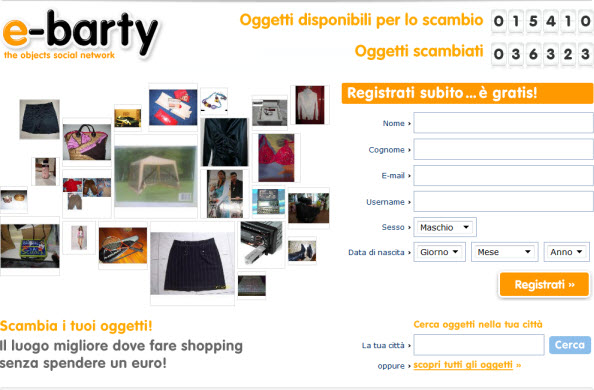I’ve been totally glad to join the EVERYTHING MUST GO project,
a 3-day exhibition with workshops and
talks that tells
the hidden story of our unwanted clothes.
...and here I am,
(EVRYTHING MUST GO on),
trying to connect different realities that I've met either there
(I have to say, there was such amazing energy, unREAL!)
and in my past, as a fashion designer for mainstream companies and art director of Capitocome,
which is based in ethic-hand-local-well-made fashion.
'Cause it might be true that we're in the
FAST FASHION BOOM
= made in China, cheap garments, crazy fast change of trends, mass market
but it's so REAL that there are alternatives.
And they can be cool, full of quality and even sustainable.
So what I'm really focused at the moment,
is the clothing process of being valued,
valueless,
then valued again.
RECYCLE and UPCYCLE ARE THE 2012 KEYWORDS.
Below some realities that you should check out
before complaining with me
that THERE ARE NOT POSSIBLE ALTERNATIVES
to made in China, cheap garments, crazy fast change of trends, mass market.
Kate Goldsworthy
She's a textile designer and researcher,
working in the area of new finishing technologies,
materials R & D and design for recycling.
Her passion lies with tools for sustainability
in the textile world,
particularly the recycling and reuse of polyesters.
TEXTILE FUTURES Central Saint Martins College
MA Textile Futures
MA Textile Futures
Their curriculum is based around an evolving set of research questions based on five key themes:
Smart, Invisible, Sustainable, Ethical and Poetic.
Remade in Leeds
Their aim is to create high-quality,
locally produced fashion clothing from unwanted materials in the local area,
encourage the creative re-use of clothing,
(they offer sewing workshops, helping you to develop new skills in upcyling, garment repair and alterations,
and through events like "Clothes Exchange", they aim to make you aware of how your clothing is produced and how to do your bit to reduce clothing waste).
HERE TODAY HERE TOMORROW
It's a collaborative and experimental shop/studio that is used to make, showcase and sell sustainable fashion and accessories.
Their work focuses on different elements of sustainability including high quality handmade craftsmanship, durability, locality, recycling,
natural dye, organic materials, individuality, fair trade and transparency of production.
So critical so fashion
It's the first event of this kind in Italy,
hosted by the Italian capital of fashion, Milan,
during the city Fashion Week.
Organised by Terre di mezzo Eventi,
it is a fair that gathers small enterprises,
environmentally safe and with high standards of quality, and young and independent brands.
A showcase of those socially responsible fashion projects that bring sustainability in the long-lasting tradition of fashion,
together with esthetics, quality, innovation and trends.
Eco-Mood Workshop @ Circolo degli Artisti
my friends, the Hysterics, organize this one day event with recycle-upcycle workshop, swap party, and "unusual entertainment".
Located in the coolest area in Rome, Pigneto,
at Circolo degli Artisti.
Cristina Sperotto teaches ECO-FRIENDLY, often RECYCLE, handmade crafts and design: TUTORIALS, patterns,
ideas for kids and grown-up.
ideas for kids and grown-up.
She likes REUSEing different materials and objects
"changing their primary function", with the aim of starting the
"changing their primary function", with the aim of starting the
"creative and open ways" in our minds.
It comes from the will of the consortium Ecolight
-collective system that deals with the management of waste from electrical and electronic equipment (WEEE) and the management of
batteries and accumulators.
Ecolight unites within its associates more than 1,100 companies.
The Museum of recycling is born with this goal: being a contribution in support of the environment,
Barattiamo.org
BARATTO = swap, just like in the past, they organize swap, and you can even join their philosophy opening your own
SWAP SHOP at this link
It's focused in CREATIVE REUSE of waste elements, that have lost their function but, because of particular shape/material,
can become something else, with high value of use. They do also consulting, swap parties, advertising for eco-friendly designers.
It's the unwanted objects social network, a sort of e-bay, but rather than buying, you just SWAP stuff.
it's a online shop that provides you your own shop-window and offers to SWAP, BUY and SELL unwanted stuff.
Who’s a door to door designer? Where does garbage came from? Who leave it away?
Every object has an owner who loved it for a minute or for his all life. Every object lived in a house, in a world full of history,
in which it playied a particular role, both as main part or just a walk-on. Resign presents “designer a domicilio”.
The door to door designer acts just in time,
before the desertedness of the objects,
before the desertedness of the objects,
before that the usury of boredom and of the habit let their beauty been forgotten.
By acting into the original places of the refusal
By acting into the original places of the refusal
(houses, stores, offices, factories, etc).
“Door to door designer” changes the course of their history,
“Door to door designer” changes the course of their history,
by transforming it in a new and unique object of Resign.
The door to door designer re-uses objects through a strong relationship with the client, (ad personam),
analysing necessities of his property.
(BY THE WAY, THE ADD -below- IS JUST A M A Z I N G !!!)
TED
Over the last ten years TED has been developing a set of practice-based sustainable design strategies
that assist designers in creating textiles that have a reduced impact on the environment.
tedresearch.net
TFRC
The Textile Futures Research Centre
comprises researchers across Chelsea College of Art and Design,
Central Saint Martins College of Art and Design, London College of Fashion, at the University of the Arts London.
Their areas of expertise cover
Biomimetics, Nanotechnology, Smart materials, Electroluminescence,
Conductive materials, Laser technology, Photonics, Motion response, 2D to 4D digital media, Visioneering,
Communication wear, Customised clothing, Ethical fashion, Sustainable design, Upcycling.
arts.ac.uk
And finally,
take a look to anthropologist Lucy Norris' project,
WORN CLOTHING,
wornclothing.co.uk
and her book The hidden afterlife of used clothing in India,
The photo below is by Tim Mitchell,
it belongs to a great work that has been
part of Everything Must Go.
Special thanks to all the Everything Must Go team,
it's been a pleasure working for you.
Let's not stop talking about it.
Thanks to journalist Manuela Soressi,
to be so accurated in her SWAP research. I hope she'll like my new links.
...d'you know what I mean?
...capitocome?















